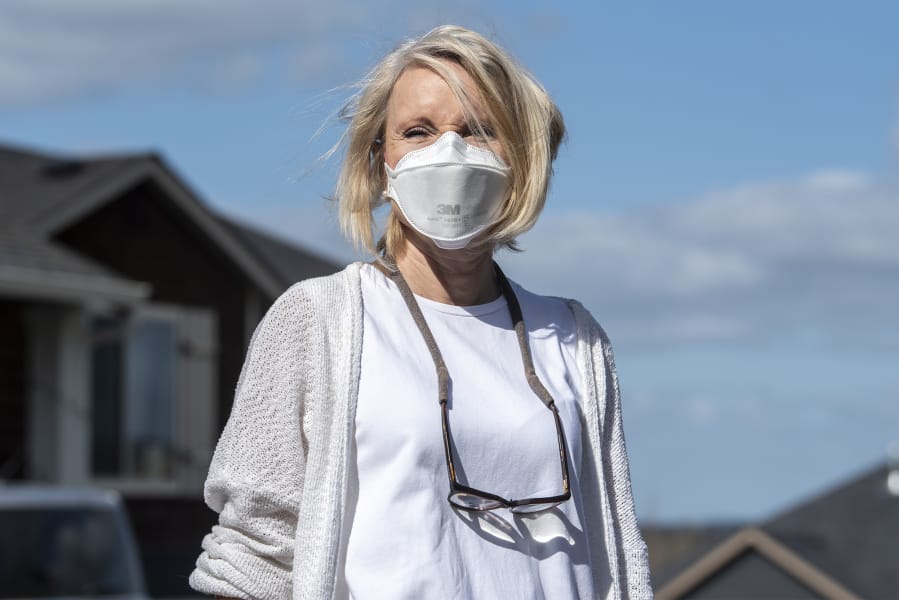Late last week, Lisa Bayautet received a phone call from a friend, who had bad news that was also kind of heartwarming, in a way.
The friend, who works at a law firm, has a co-worker who has a roommate who was tested for COVID-19. The friend asked if it was OK to cancel their upcoming lunch plans, not only for their general safety, but also because Bayautet takes medication for psoriatic arthritis that suppresses her immune system.
“I do really appreciate that she asked,” said Bayautet, a 56-year-old Vancouver resident.
As COVID-19 cases continue to increase across the U.S. and Washington, in particular, Clark County Public Health has made the recommendation that people who are older than 60, have weakened immune systems or serious chronic medical conditions stay away from large group gatherings.
So far, COVID-19 doesn’t appear to be particularly contagious, serious or deadly for most younger, healthy people. But its contagiousness and consequences for those older than 60, or with underlying medical conditions, appear to be much more serious.
A majority of U.S. deaths from COVID-19 have been connected to people who are elderly or have other chronic medical conditions. A nursing home in Kirkland has seen about 20 deaths from COVID-19, and 59 percent of the state’s 366 diagnosed cases so far are in people 60 and older, and another 13 percent of cases are for people in their 50s.
“They have a much higher risk of dying from it,” said Clark County Public Health Officer Dr. Alan Melnick.
Bayautet said she understands the risks to the elderly, but also wants people to know that there are people who don’t live in long-term care facilities who are greatly impacted by the outbreak.
“I’m one of those (compromised) people, and we all walk around Vancouver,” Bayautet said. “You don’t have to be in a nursing home to be compromised.”
When on her medication, Bayautet is more susceptible to complications from the virus because her immune system is suppressed. Paper cuts take a week to 10 days to heal, she said, and she once had an ear infection for two months. She wears an N95 respirator, which filters out airborne particles, every time she visits the doctor.
“I don’t want to be a doomsday person, but I want to be cautious and I want people to be cautious around me too,” she said.
Bayautet is having almost weekly discussions with her health care provider about whether to go off her medication to return her immune system to a more normal status. That would mean more pain as symptoms from psoriatic arthritis would return, but it also might be necessary.
Bayautet said she’ll probably have to make a decision on delaying her medication in the next week or two. A spokesman for Adventist Health wouldn’t comment specifically on Bayautet’s scenario, but did say patients should always check with a doctor before altering medications.
Bayautet has stayed positive throughout the last month, because she’s hopeful people will change their behavior around spreading germs in general, and look out more for those who have compromised immune systems. She said her friend’s phone call and the canceled lunch are a hopeful sign that people are taking the right precautions.
She also wants to see more people properly hand-wash and keep a safe distance from each other when congregating.
“I would like to see a change in our culture,” she said. “This is a wonderful opportunity to modify our behaviors in a way that is more helpful.”




